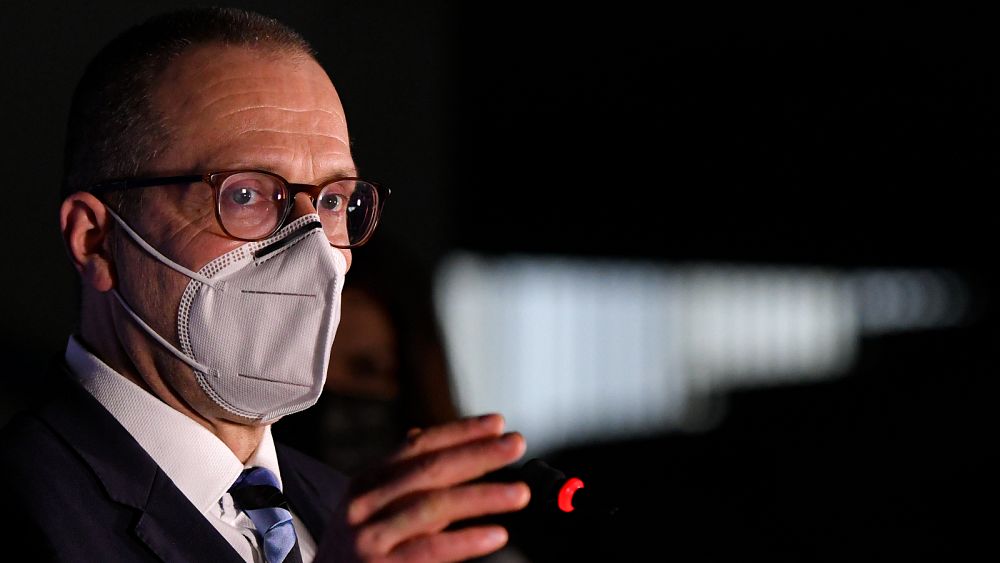
Europe could be moving towards “a kind of pandemic endgame”, according to a regional director of the World Health Organization.
Dr Hans Kluge, marking the second anniversary of COVID’s arrival on the continent, said we were now entering a new phase of the disease.
He said the Omicron variant was displacing Delta at unprecedented speed, making up a third of cases across the region.
“The pandemic is far from over, but I am hopeful we can end the emergency phase in 2022 and address other health threats that urgently require our attention,” said Dr Kluge, regional director for WHO’s European region.
“Backlogs and waiting lists have grown, essential health services have been disrupted, and plans and preparations for climate-related health stresses and shocks have been put on hold across the region.”
Dr Kluge added COVID could become a seasonal disease in the months to come.
“It’s plausible that the region is moving towards a kind of pandemic endgame,” he explained, adding that Omicron could infect 60% of Europeans by March.
Once the current surge of Omicron currently sweeping across Europe subsides, “there will be for quite some weeks and months a global immunity, either thanks to the vaccine or because people have immunity due to the infection, and also lowering seasonality”.
“We anticipate that there will be a period of quiet before COVID-19 may come back towards the end of the year, but not necessarily the pandemic coming back,” Dr Kluge added.
The Omicron variant, which studies have shown is more contagious than Delta but generally leads to less severe infection among vaccinated people, has raised long-awaited hopes that COVID is starting to shift from a pandemic to a more manageable endemic illness like seasonal flu.
But Dr Kluge cautioned that it was still too early to consider the coronavirus endemic.
“There is a lot of talk about endemic but endemic means … that it is possible to predict what’s going to happen. This virus has surprised us more than once so we have to be very careful,” Dr Kluge added.